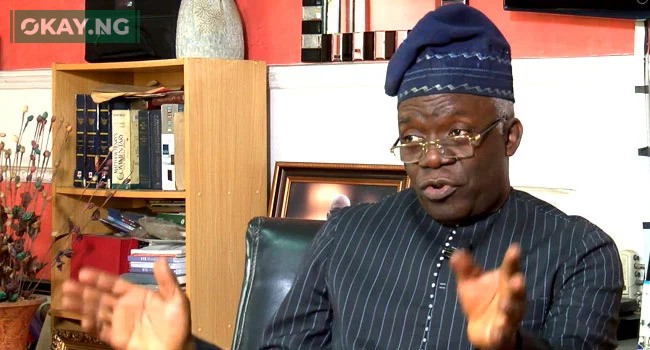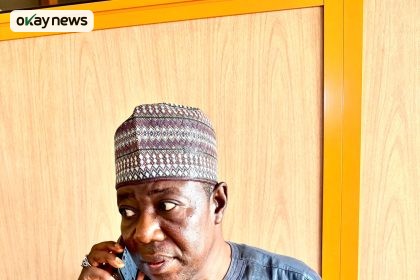Renowned human rights lawyer, Femi Falana, SAN, has criticized Kemi Badenoch, leader of the United Kingdom’s Conservative Party, over her recent comments suggesting that she cannot pass on Nigerian citizenship to her children because of her gender.
Speaking during an interview with CNN’s Fareed Zakaria on Sunday, Badenoch had claimed that Nigerian nationality laws are discriminatory against women, stating, “I have that citizenship by virtue of my parents. I can’t give it to my children because I’m a woman.”
She further suggested that it was easier for Nigerians to acquire British citizenship than it is for foreigners to become Nigerian citizens. “It’s virtually impossible, for example, to get Nigerian citizenship… We need to stop being naive,” she added.
In a sharply worded statement issued on Monday, Falana condemned Badenoch’s claims, describing them as “a display of utter ignorance” and an attempt to mislead the public for political gain.
“In her desperate attempt to impress the British electorate, Kemi Badenoch keeps running down Nigeria,” Falana said. “Contrary to her misleading claim, her children are Nigerians because she is a Nigerian.”
Falana cited Section 25(b) and (c) of the 1999 Constitution of Nigeria (as amended), which states that any person born outside the country to a Nigerian parent—regardless of gender—is entitled to citizenship by birth.
“Her assertion that she cannot give Nigerian citizenship to her children because she is a woman is not in consonance with the Constitution,” he said. “Furthermore, by virtue of Section 42(2), no citizen shall be subjected to any disability or deprivation merely by reason of circumstances of birth, gender, or class. The fact that she may not want them to claim it is irrelevant. For now, they are dual citizens of Britain and Nigeria.”
The senior advocate also dismissed Badenoch’s claim that Nigeria is hostile to naturalisation. “Sections 26 and 27 of the Constitution clearly state that foreigners can acquire Nigerian citizenship through naturalisation or registration once they meet the legal conditions,” he explained.
However, Falana acknowledged that gender disparity does exist in the naturalisation process, noting that “a woman married to a Nigerian man can be registered as a citizen, but the same privilege is not extended to a man married to a Nigerian woman.”
He described this gap as “a reflection of the patriarchal nature of the law,” and called for urgent legislative reforms to eliminate the inequality.
Okay.ng reports that Badenoch, who was born in the UK to Nigerian parents and spent part of her childhood in Nigeria, has often been criticised for controversial remarks about immigration and identity. Her comments during the CNN interview have sparked wide backlash, with many accusing her of misrepresenting Nigerian laws to advance her political narrative in the UK.







